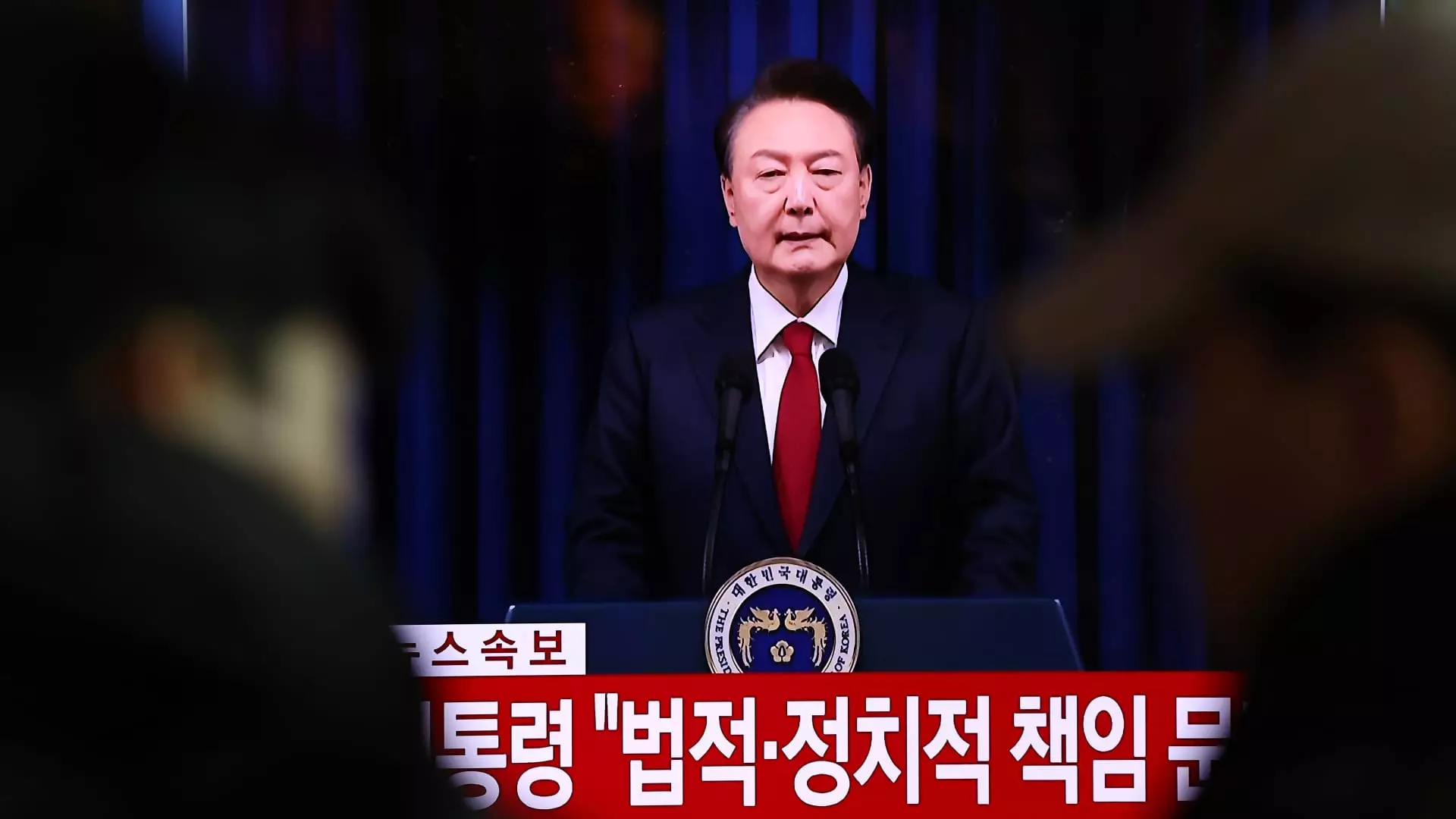On a memorable Saturday in South Korea, President Yoon Suk Yeol faced impeachment—an event that has shaken the political landscape of the nation. The impeachment was initiated following a controversial decision made by Yoon to briefly enforce martial law on December 3, a move that alarmed both citizens and political analysts alike. After his previous attempt to secure support for impeachment failed due to a walkout by his own allies in the People Power Party, the shifting political dynamics in the National Assembly ultimately played a crucial role in his downfall.
The implications of the impeachment are dire. A presidential election must occur within a 60-day period if a sitting president is dismissed, setting off a clock that could redefine South Korea’s leadership in a matter of weeks. This scenario mirrors historical precedents in South Korea, where political instability has often resulted in radical changes in governance, seen most notably with the impeachments of Roh Moo-hyun in 2004 and Park Geun-hye in 2016.
The events leading up to Yoon’s impeachment seem to have stemmed from a complex interplay of political maneuvering and growing public discontent. The martial law declaration, which Yoon cited as necessary to “protect the constitutional order,” was rapidly revoked, raising concerns that such a drastic measure could be employed again. This fluctuation signaled not only instability in leadership but also led to a steep decline in Yoon’s approval ratings, crashing to a historic low of 17.3%.
Moreover, the growing controversies surrounding Yoon, particularly those involving his wife, Kim Keon Hee, exacerbated the situation. Public scrutiny and media investigations have uncovered various scandals that have effectively undermined his reputation. As the political tide turned, support within his own party diminished, leading to PPP leader Han Dong-hoon actively suggesting a vote for impeachment and calling for discussions about Yoon’s future in the party.
In a prolonged national address post-impeachment, Yoon took a defiant stance, vowing to “fight to the end.” He criticized the opposition, questioning their claims that his martial law declaration constituted insurrection. This rhetoric highlights Yoon’s determination to stick to his guns, but it also reflects the political impasse that has gripped South Korea, as his administration seems increasingly isolated.
Yoon’s ability to remain steadfast against such mounting pressures might be rooted in the belief that political fortunes can turn quickly; however, history suggests otherwise. The precedent set by previous impeachments often leads to significant political reform or shifts in power. As a result, Yoon’s proclamations may serve as mere band-aids on festering political wounds rather than as genuine means for recovery.
The political upheaval has rattled South Korean markets, leading to fluctuations that concern both domestic and international investors. It has thrown into question the overall stability of Asia’s fourth-largest economy, a concern echoed by market analysts. Yet, some voices in the investment community are asserting that observers are beginning to “look through this crisis” and pivot back to focusing on the underlying strength of the economy, particularly in sectors like technology and artificial intelligence.
John Woods, CIO at Lombard Odier, expressed the hope that an “end game” may soon be visible, implying a belief that South Korea’s political instability could soon stabilize, allowing for economic recovery. The country’s robust tech industry, particularly in chips and the booming AI sector, continues to promise growth potential, despite the precarious political situation.
As South Korea braces for what could be a consequential election, the political landscape has irrevocably shifted due to Yoon’s impeachment. The events of recent months have illuminated the fragility of democratic governance and the influence of public sentiment in shaping political trajectories. The ramifications are multifaceted—while the dynamics within the National Assembly may dictate the immediate future of governance, the economic implications are also intricately entwined.
In closing, the impeachment of President Yoon Suk Yeol signifies more than just a political upheaval; it embodies a critical juncture for South Korea, one that could redefine its democratic values and economic strategies in the years to come. As the nation continues to navigate these turbulent waters, the outcome of this political crisis will resonate well beyond the shores of the Korean Peninsula.


Leave a Reply